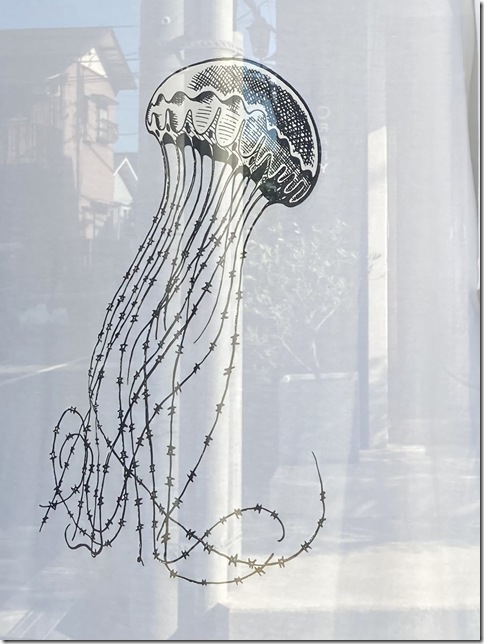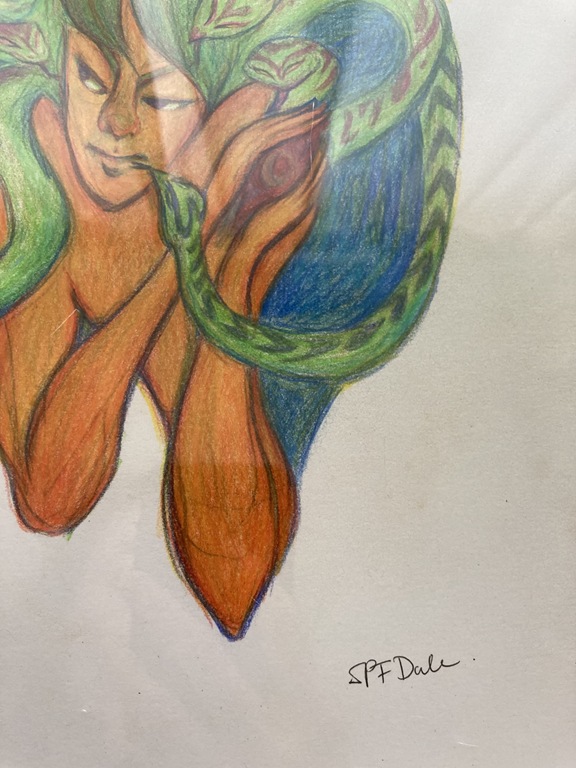
さらっと見る目次
[This is an excerpt of my weekly newsletter. Which you can sign up for free.]
I had three AI interviews the past few days. What do I mean by an AI interview? Well, there’s an AI recruiter on the other side of the computer, and there’s me on this side. And we talk.
jellyfish
The AI recruiter didn’t have a human form. They reminded me of a line drawing like 1960s geometric art. And it was swaying in the center of a black screen like a jellyfish.
Jellyfish or not, I shall talk to them like I would anyone at an interview: professionally, with a warm smile. Fate brought us together after all.
AI asks questions, and I answer. AI doesn’t seem able to carry on a conversation. Not yet.
Me: “Could you please repeat the question?”
Jellyfish: “Yes, that is…” (sways as it repeats the question)
Me: “About that earlier question, would you please explain what XYZ means?”
Jellyfish: “I cannot discuss that.”
I see. Well then.
Me: (Talks at length about the topic asked)
Jellyfish: “Thank you for sharing that♪” (sway sway~)
what are these interviews for?
They are for remote part-time AI training jobs. ChatGPT is smart, but sometimes it gives us dumb answers. So humans teach AI to perform better by [I’m not sure exactly what they do, but hopefully I’ll find out]. I’ve taken assessment tests for five US- and UK-based companies in the last few days and passed them all, but there are still project-specific tests to take.
I’ve never played video games, but is this what competitive games feel like?
robotic me
I often use the expression “to each their own,” and it turns out AI also has its own variations.
One AI I talked to reminded me of robots from old movies. Another one had this incredibly emphatic tone and a General American English accent. She sounded like the podcaster Phoebe Judge, slightly younger.
I noticed that when I talked with the robot AI, I went robotic. When I was speaking to the empathetic-sounding AI, I sounded like my usual self.
Many of us naturally match our tone to the other person’s mood. I do too. I try to be cognizant of that so I won’t go overboard.
I forgot to do that with the robot AI and ended up sounding super robotic!
animism
It was fascinating reading online accounts of AI interviews.
Some people are furious about companies bringing AI to interviews. “It is disrespectful.” “I got so disgusted I hung up midway.” Their feelings were hurt. Understandably.
On the other hand, some folks say “It was relaxing,” or “I felt like AI really listened to me.” I’m in the latter group.
Is it because I grew up in Japan, a land of eight million gods with deep animistic roots? Or was I born this way? Probably both.
So what is animism? It’s a worldview that believes souls inhabit all things living or non-living, human or otherwise: flora and fauna, natural phenomena, houses and everyday objects.
When I wake up in the morning, I open the window and greet the sky and the sea. If I drop a remote control, I pick it up, say “Sorry!” and give it a gentle pat.
(I wrote about this in detail in my newsletter, “Routines and Rituals”).
AI interviews are audition videos
I think of AI interviews as “self-tapes,” the videos (I imagine) that actors submit to casting directors.
Only I don’t do filming or editing myself. Instead, I film the video on a system provided by the company, and in so doing, I am joined by a Jellyfish.
So while it is called “an interview,” it really isn’t. It’s a one-way communication self-tape.
If you are thinking, “But you were just saying objects possess spiritual essence and even created a term of endearment, ‘Jellyfish’ for the AI recruiter. How cold,” you are right. I am cold AND animistic.
today’s special
something new: a new desk setup
something read: Fryderyk Chopin: A Life and Times by Alan Walker, and Anxious by Joseph Ledoux, a little bit of
 SPF Dale Trust (2024) Colored pencil on paper, approx. 21×29.7cm Price: ¥13,200 + shipping
SPF Dale Trust (2024) Colored pencil on paper, approx. 21×29.7cm Price: ¥13,200 + shipping




